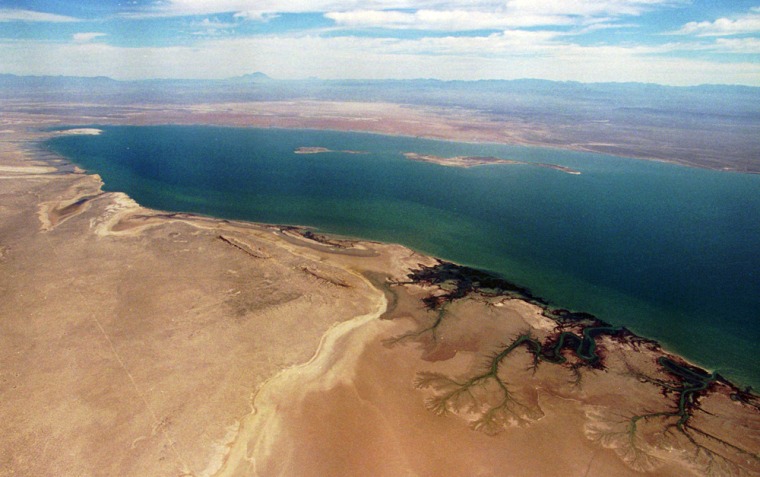U.S. and Mexican conservationists and communal land holders have agreed on a plan to limit further development of about 110,000 acres of coastal land around a northern Mexico lagoon that serves as a calving ground for gray whales.
Members of the communal landholding group Ejido Luis Echeverria and the conservation groups Pronatura of Mexico and the California-based Wildcoast agreed to preserve the Laguna San Ignacio, a pristine lagoon home to wetlands frequented by migratory birds and mangrove swamps that feed the local fishing industry.
California gray whales migrate 6,000 miles from the Bering Sea to the lagoon, located along Baja California's Pacific Coast about 450 miles south of San Diego, to mate and bear their young.
The communal landholders agreed to limit development in 110,000 acres and in exchange they will receive $25,000 a year in perpetuity from a trust fund established through the San Diego-based International Community Foundation.
Pronatura will ensure that the money is used for environmentally friendly projects and land holders will also have access to loans to strengthen the existing ecotourism industry.
The agreement will help "to avoid the plundering of natural resources in San Ignacio," said Pronatura's director Enrique Hambleton.
The San Ignacio forms part of the Vizcaino Biosphere Reserve, which UNESCO declared a world heritage site in 1993. In 2000, Mexico halted plans to build a salt plant after years of controversy and protests from environmental groups.
"If we hadn't signed this agreement, we could have been forced to sell some of our land but with (the financial help) we can open small business and strengthen the economy of our communities," said landholder Raul Lopez, who represented the Ejido Luis Echeverria.
Lopez said the region's fishing industry, which feeds local restaurants, had more than quadrupled since landholders began to focus on protecting the lagoon and promoting ecotourism.
"Before our fishing industry netted about 300 kilograms (660 pounds) per season and that has gone up to more than 1,300 kilograms," Lopez said.
Lopez said land holders planned to use the money to buy more boats for whale watching, build camping grounds and open small restaurants.
